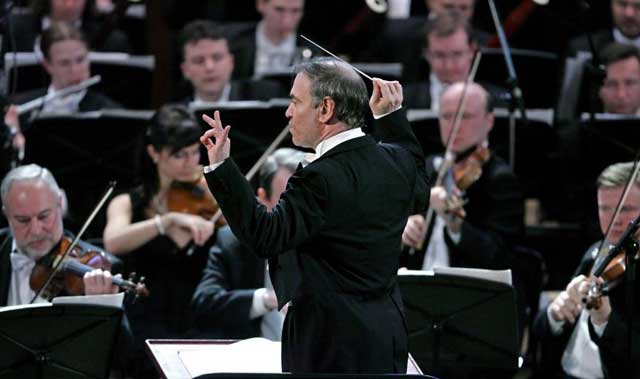LSO/Gergiev, St Paul's Cathedral, London

Your support helps us to tell the story
From reproductive rights to climate change to Big Tech, The Independent is on the ground when the story is developing. Whether it's investigating the financials of Elon Musk's pro-Trump PAC or producing our latest documentary, 'The A Word', which shines a light on the American women fighting for reproductive rights, we know how important it is to parse out the facts from the messaging.
At such a critical moment in US history, we need reporters on the ground. Your donation allows us to keep sending journalists to speak to both sides of the story.
The Independent is trusted by Americans across the entire political spectrum. And unlike many other quality news outlets, we choose not to lock Americans out of our reporting and analysis with paywalls. We believe quality journalism should be available to everyone, paid for by those who can afford it.
Your support makes all the difference.St Paul's Cathedral might be seen as the ultimate destination for a man already regarded as the omnipotent force in London musical life. But what should have been the crowning glory of Valery Gergiev's Mahler cycle – the mighty Eighth – was here bestowed with very mixed blessings indeed. The newly restored St Paul's is a thing of wonder, invoking silent awe beneath its great dome. But it's not a place for music on this scale.
Even sitting within a few feet of Gergiev's podium, this extraordinary score sounded like someone had smeared it while the ink was still wet. Further back, I'll wager it resembled a Berio collage. Mahler would not have rejoiced at how it recast his harmonic language. Buttressed by the open-stopped organ, the setting of the medieval hymn "Veni, Creator Spiritus" – a symphonic allegro in all but name – roared into the space and promptly disappeared heavenward.
Gergiev, rightly, made no concessions to the acoustic, pitching bravely into the central double-fugue. But the faster the choirs moved, the more they appeared to be playing catch-up. The moment of Mahler's thrilling recapitulation was identifiable only by the multiple cymbal clash. Gergiev was wise to keep his eyes firmly on the score.
But the inevitable unease of keeping this monster on track made for a certain nerviness as we descended, on ominous string-bass pizzicati, into the rocky depths of Part II.
In Mahler's setting of the final scene from Goethe's Faust, the solo voices become individuals – or should. But excellent though his eight principally Russian soloists were, their most fervent efforts were again drained of presence by the total lack of immediacy. Both sopranos – Anastasia Kalagina and Ailish Tynan – sang full and true and there was a virile, intrepid tenor in Sergey Semishkur.
His summoning of the Mater Gloriosa – the LSO's sweetest violin sound floating on a cushion of harmonium – brought a moment of magical serenity in the space, the calm that passeth all understanding. But poor Liudmila Dudinova, singing from afar (very afar) was horribly flat. Still, the Chorus Mysticus duly arrived in a breathtaking hush of massed voices and we assumed the ascendancy. A pity, then, that we could barely hear the off-stage trumpets stretching the "Veni, Creator Spiritus" motif from a confident fourth to an ecstatic ninth – especially since they'd probably started playing at the beginning of Part II.
Join our commenting forum
Join thought-provoking conversations, follow other Independent readers and see their replies
Comments